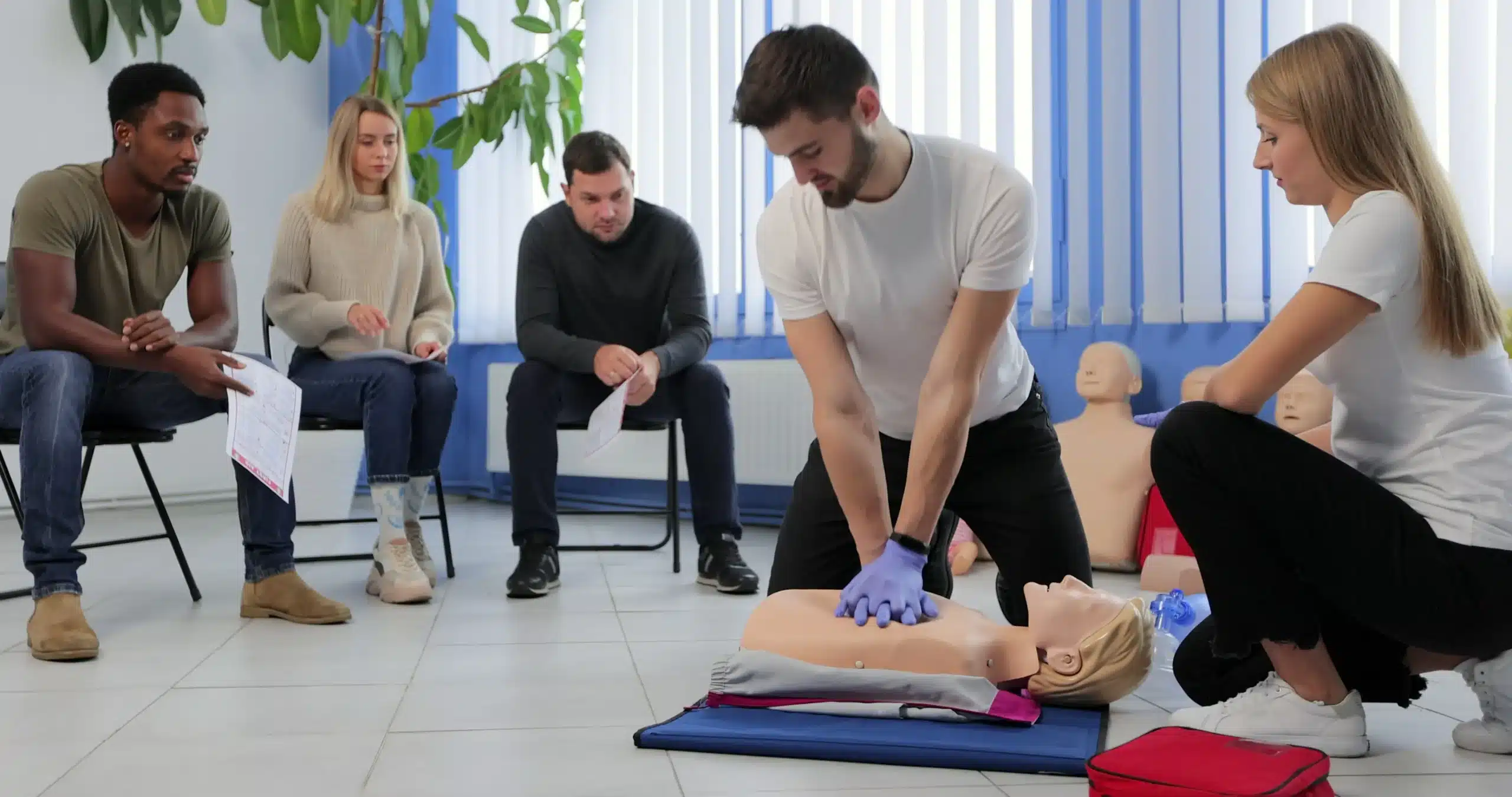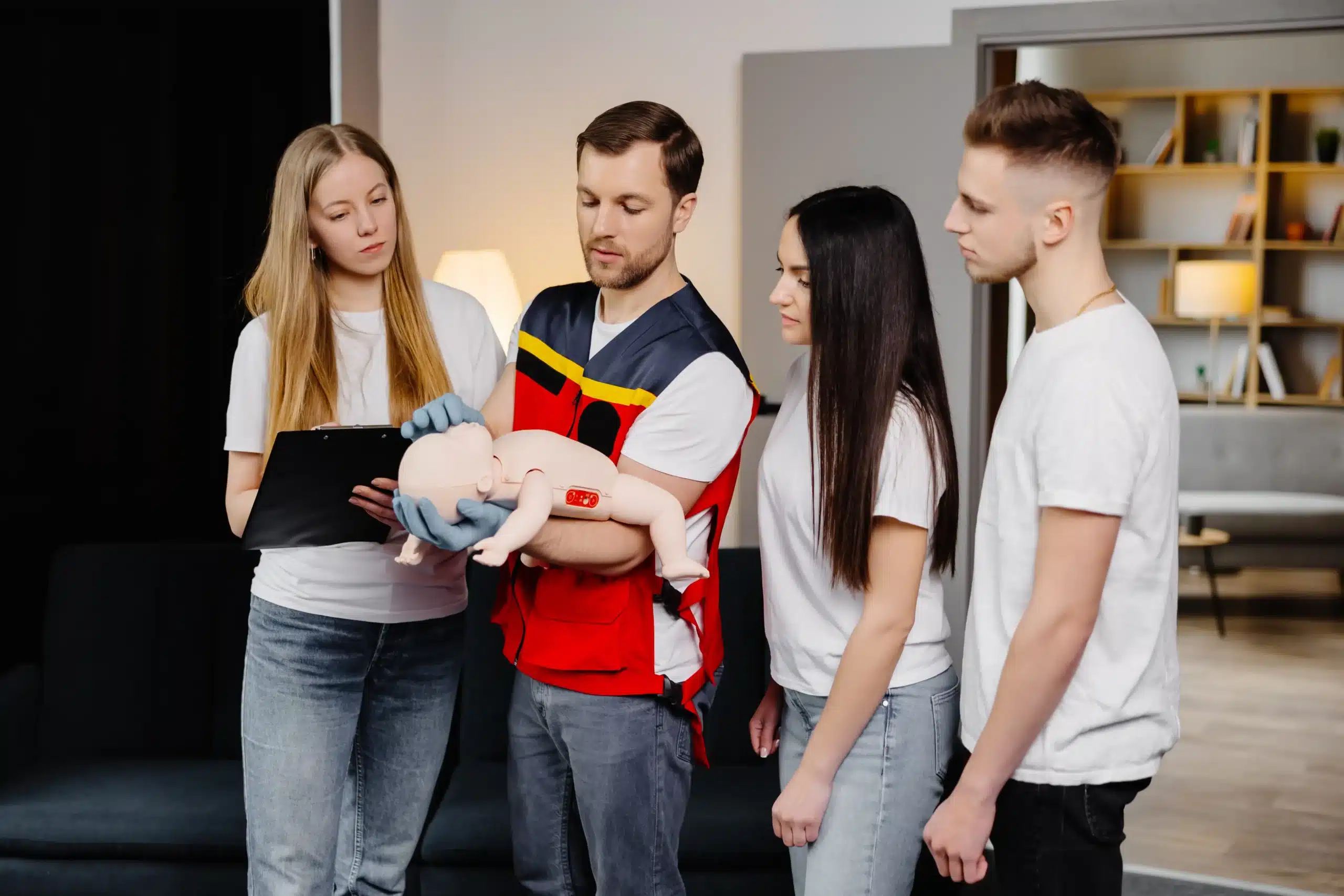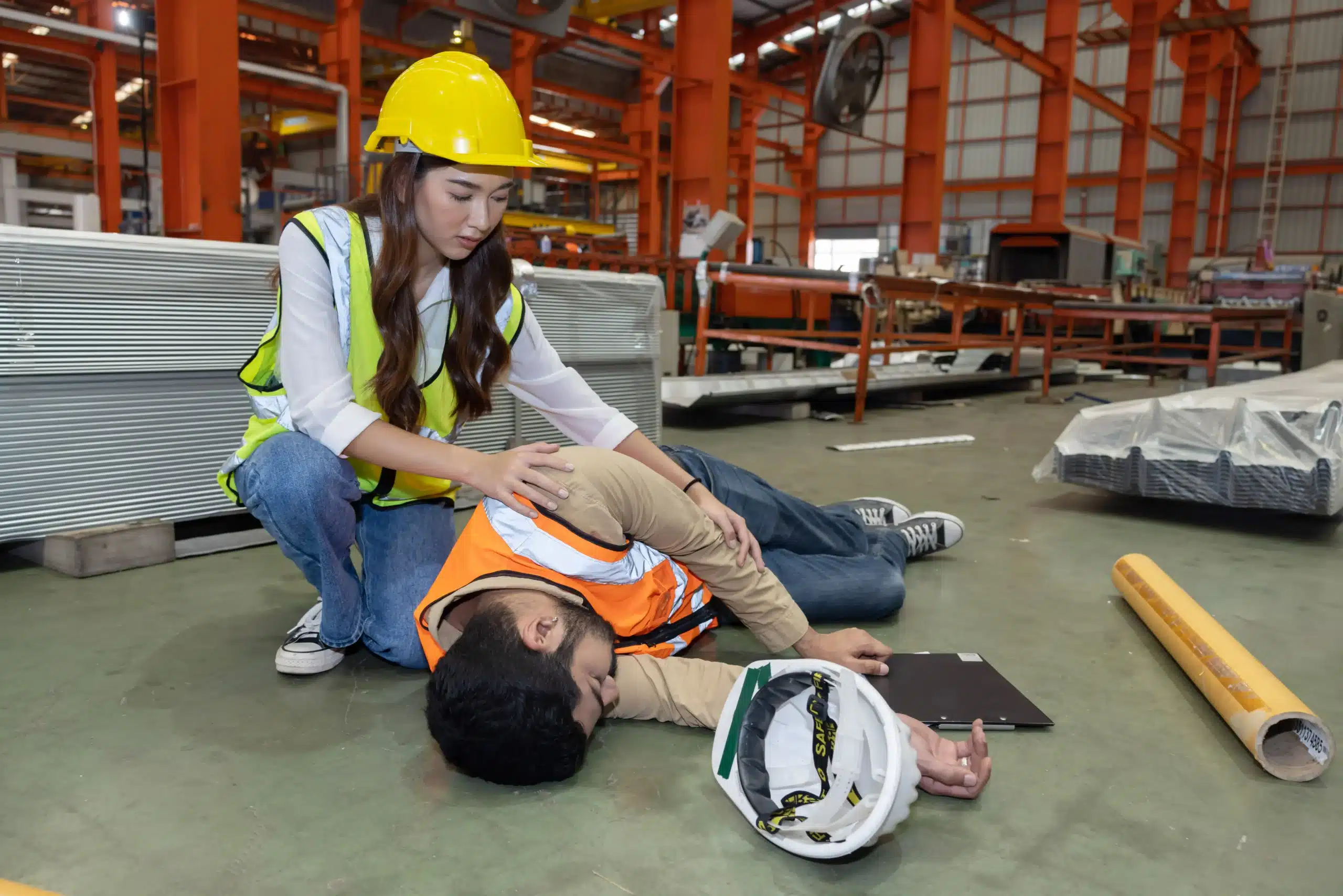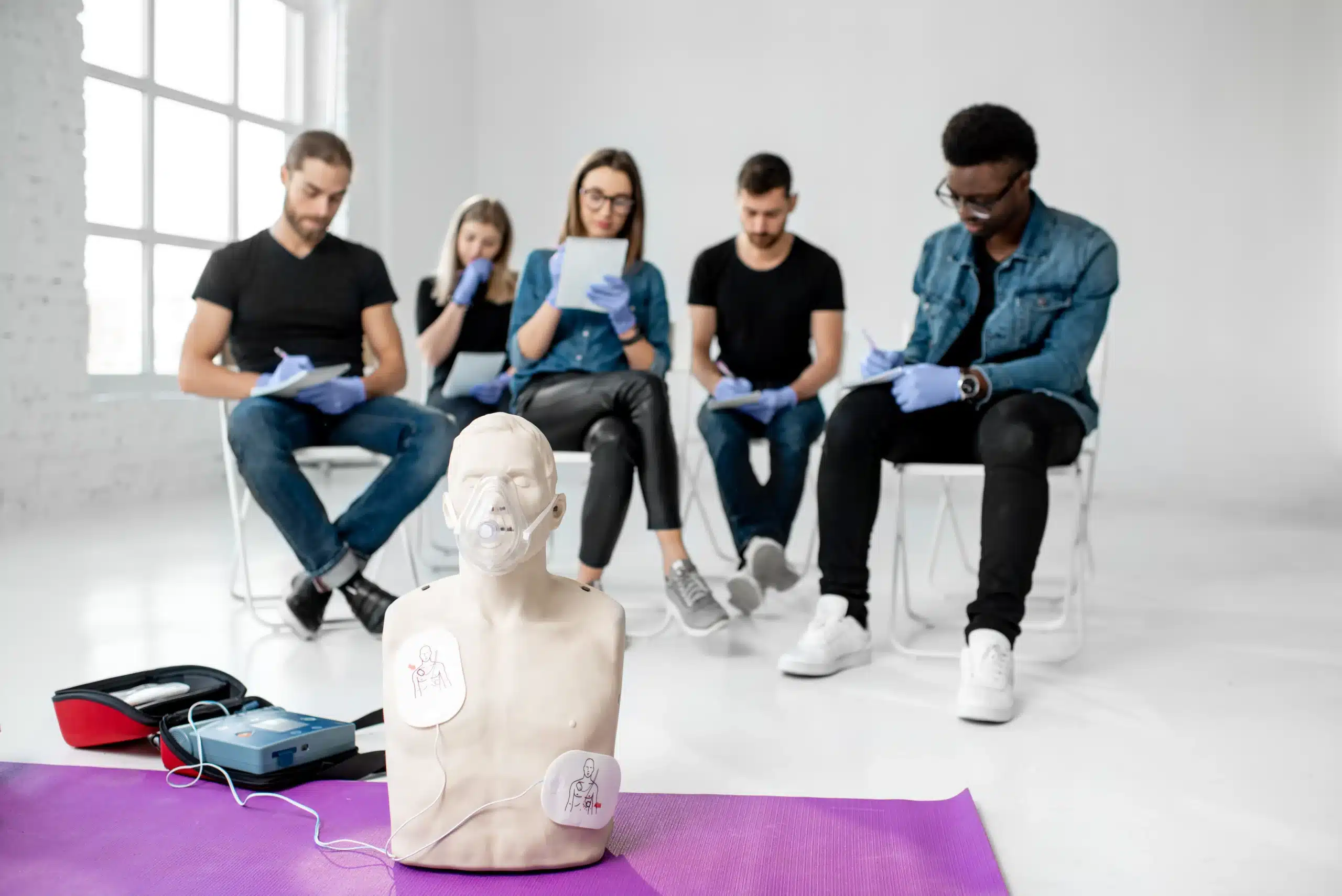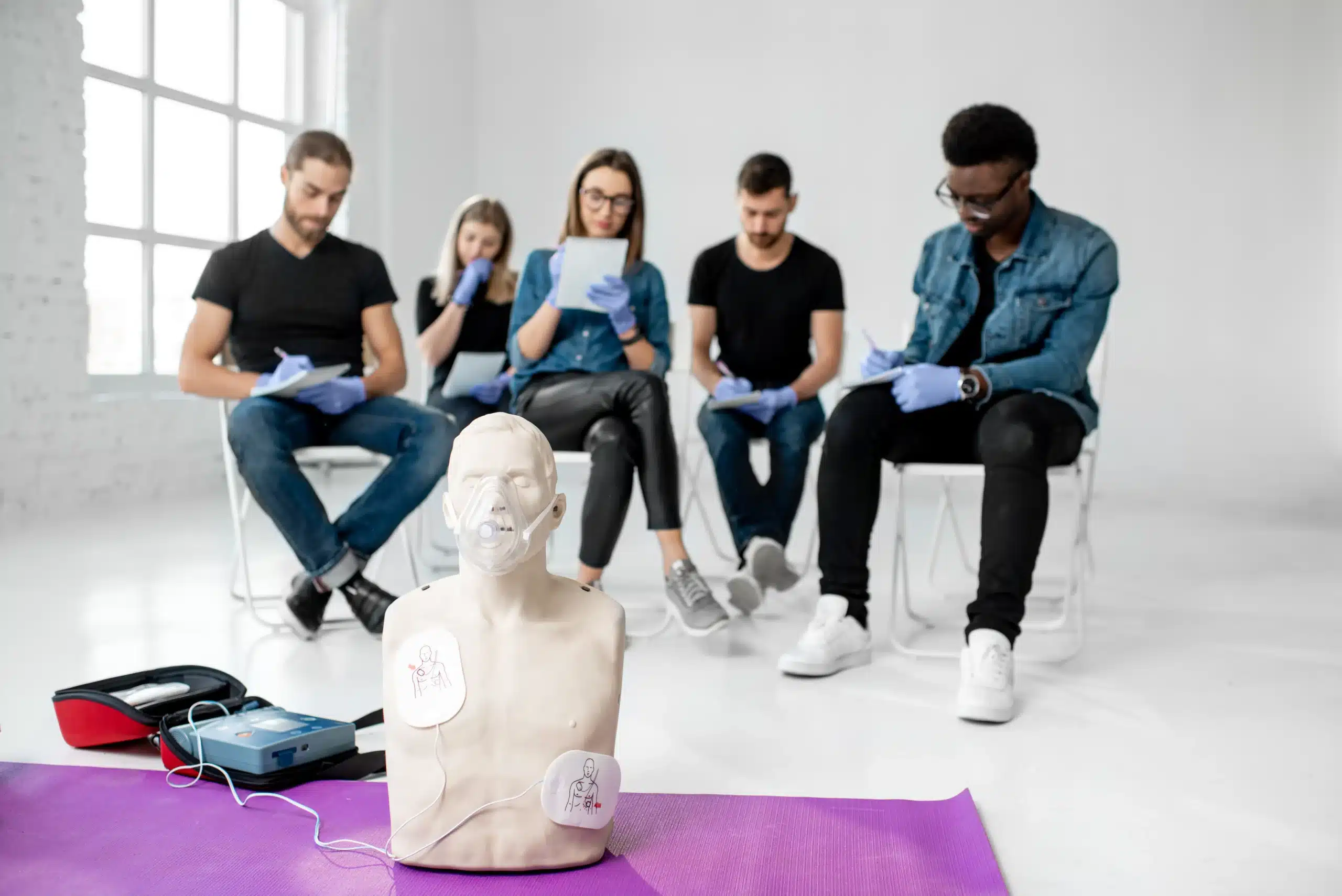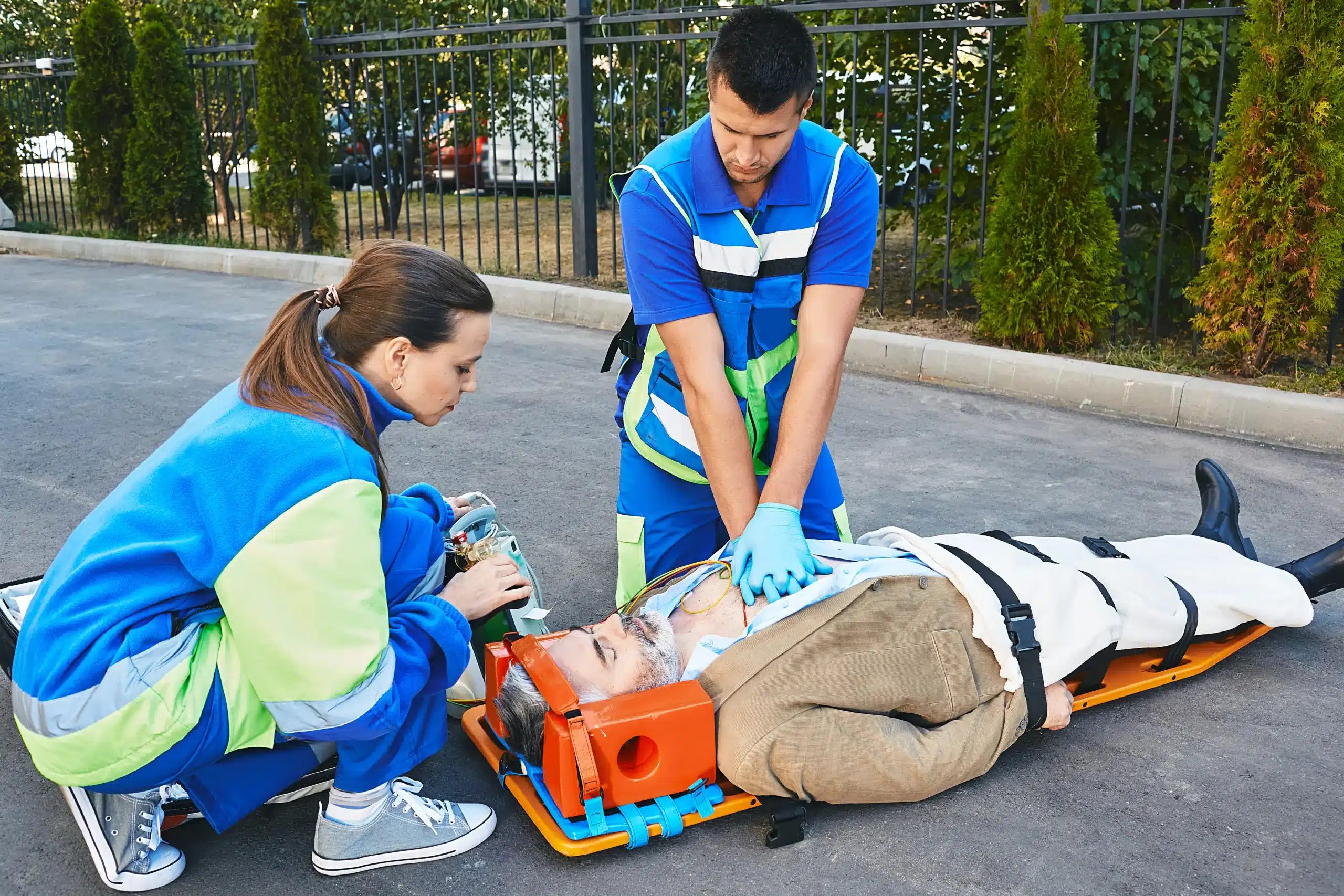Working in healthcare in Sacramento, you know how crucial it is to stay sharp with your lifesaving skills. But traditional CPR training can feel like a disruption, right? RQI in Sacramento offers a fresh approach. It’s designed to fit your busy schedule with shorter, more frequent practice sessions that reinforce your skills and build confidence. This article explores how RQI helps Sacramento healthcare providers like you maintain top-notch CPR competence without sacrificing valuable time. We’ll cover everything from the basics of RQI to finding the right training program in Sacramento.
Key Takeaways
- RQI provides flexible CPR training to fit your schedule: The low-dose, high-frequency model makes it easier to stay current on your certifications, even with a busy workload. Sacramento healthcare providers can find convenient RQI courses throughout the area.
- Hands-on RQI training builds confidence and improves CPR skills: Simulation stations and real-time feedback help you refine your technique and master essential skills for better patient outcomes.
- Find affordable RQI certification in Sacramento: Several reputable training centers offer RQI courses, including Davis CPR Classes and Safety Training Seminars, with options to fit various budgets.
What is RQI and Why it Matters for Sacramento Healthcare Professionals?
The Resuscitation Quality Improvement (RQI) program takes a fresh approach to CPR training, focusing on consistent skill maintenance for healthcare providers. Developed by the American Heart Association, RQI uses a low-dose, high-frequency model. This means healthcare professionals regularly practice CPR, keeping their skills sharp for critical moments. This is especially important in Sacramento, where quick, effective CPR can dramatically affect patient outcomes during emergencies.
RQI training goes beyond the basics by incorporating simulation stations and real-time feedback. This hands-on practice with immediate feedback helps refine CPR technique and ensures it aligns with the latest American Heart Association recommendations. Studies show that paramedics and other healthcare professionals trained with RQI deliver chest compressions at the AHA-recommended rate more consistently than those trained through traditional methods. This makes RQI a vital tool for Sacramento healthcare providers, giving them the confidence and competence to handle cardiac emergencies effectively. For Sacramento healthcare providers, RQI isn’t just another training program; it’s a key resource for saving lives. Davis CPR Classes offers convenient RQI courses designed to fit the busy schedules of healthcare professionals in the Sacramento area. You can learn more about RQI and how it improves healthcare training through this helpful resource.
RQI Certification Classes in Sacramento
RQI, or Resuscitation Quality Improvement, represents a significant advancement in CPR training, offering healthcare professionals a more effective and flexible way to maintain their lifesaving skills. In Sacramento, you can find RQI certification classes for various levels of expertise, ensuring that everyone from basic life support providers to advanced cardiac life support specialists can access this innovative training. This approach emphasizes consistent practice and skill development, leading to improved patient outcomes.
BLS RQI
The American Heart Association RQI program offers medical and healthcare professionals in Sacramento a streamlined path to their official AHA BLS certification. This program prioritizes continuous training and skill retention, ensuring providers are always prepared for emergencies. Rather than relying on infrequent, high-pressure testing, RQI uses short, frequent training sessions to reinforce skills and build confidence. This method helps Sacramento healthcare providers maintain a higher level of competency throughout their certification period. For busy professionals, the flexibility of RQI is a major advantage.
ACLS RQI
RQI training integrates seamlessly into ACLS certification courses, using simulation stations and real-time feedback to refine resuscitation skills. This hands-on approach enhances the learning experience and reinforces the critical thinking and quick decision-making required in advanced cardiac life support. For Sacramento healthcare providers in critical care, ACLS RQI provides the consistent practice necessary to manage complex resuscitation scenarios with confidence. This ongoing training ensures they remain sharp and ready to respond effectively.
PALS RQI
The RQI program also benefits healthcare providers focused on pediatric care. Maintaining top-notch CPR skills is crucial for effective pediatric resuscitation, and PALS RQI delivers the focused training needed. This program reinforces the specific techniques and considerations for pediatric advanced life support, ensuring Sacramento providers can confidently address the unique needs of infants and children during emergencies. This specialized training plays a vital role in positive outcomes during pediatric cardiac arrest situations.
Find RQI Classes in Sacramento
Finding the right RQI course in Sacramento is easier than you think. With various locations and flexible schedules, you can find a program that fits your needs.
Locations and Training Centers
Safety Training Seminars, a woman-owned American Heart Association Training Center, offers RQI courses throughout Sacramento. For those in surrounding areas like Davis, Woodland, and even further afield, Davis CPR Classes offers courses in over 60 cities. They also have a low price guarantee, ensuring affordable options for your RQI certification.
Class Schedules and Flexibility
RQI training is designed to accommodate busy schedules. Safety Training Seminars offers courses seven days a week, from 8 am to 5 pm. This flexibility allows healthcare providers in Sacramento to find a time that works for them. Check the BLS course schedule for available classes. They also offer specialized training, like EMSA Health, Safety, and Lead Poisoning, for those who need it.
Benefits of RQI Training for Sacramento Healthcare Providers
RQI training offers several advantages for healthcare providers in Sacramento. It’s designed to boost both your skills and confidence in providing CPR. Let’s explore some key benefits:
Improve CPR Competence and Confidence
High-quality CPR is crucial during cardiac arrest. The RQI program helps you maintain and improve your CPR skills and knowledge through regular practice and assessment. This consistent training builds confidence, empowering you to act decisively in critical situations. Knowing you have the skills to perform effective CPR makes a real difference.
Low-Dose, High-Frequency Training
Busy schedules often make it tough to fit in training. RQI’s low-dose, high-frequency approach addresses this challenge directly. Short, regular refresher sessions make it easier to integrate training into your workflow. This method has been shown to be highly effective in improving CPR competence. You’ll find that consistent, bite-sized practice sessions are more manageable and lead to better retention of skills.
Real-Time Feedback and Skills Assessment
RQI uses simulation stations with real-time audiovisual feedback. This technology provides objective assessment of your CPR skills, highlighting areas for improvement and reinforcing correct techniques. The immediate feedback helps you refine your skills quickly and effectively.
Enhance Team Performance
Studies show that RQI-trained healthcare professionals are more likely to deliver chest compressions at the AHA-recommended rate. This consistency across your team leads to better patient outcomes. Improved individual skills translate to stronger team performance, creating a more effective and coordinated response during emergencies.
How RQI Differs from Traditional CPR Training
RQI represents a significant shift from traditional CPR training methods. It moves away from the traditional “learn and test” model to a more dynamic and engaging approach. This new approach focuses on continuous improvement and real-time feedback, leading to better CPR skills and improved patient outcomes. Let’s explore the key differences:
Continuous Learning
Traditional CPR training often involves a single class followed by a skills test every two years. This can lead to skill decay and decreased confidence over time. RQI takes a different approach, emphasizing frequent, short practice sessions distributed throughout the year. This “low-dose, high-frequency” method helps healthcare providers maintain their CPR skills and knowledge at a consistently high level. Think of it like regular workouts at the gym – short, consistent practice builds strength and endurance, just like RQI builds CPR competence. This continuous reinforcement helps providers deliver more effective CPR during real cardiac arrest events. You can learn more about the Resuscitation Quality Improvement program and its benefits.
Simulation-Based Training
RQI classes use advanced simulation stations to create realistic training scenarios. These stations provide real-time feedback on chest compression rate, depth, recoil, and other critical elements of CPR performance. This immediate feedback allows providers to refine their technique and improve their skills quickly. Unlike traditional instructor-led training, which relies on periodic assessments, RQI’s simulation-based training offers personalized coaching and guidance throughout the learning process. This personalized approach helps providers develop muscle memory and confidence, leading to more effective CPR in real-life situations.
Immediate Certification
One of the most convenient aspects of RQI is the immediate certification process. Upon successful completion of the skills test, students receive their certification card the same day. This eliminates the waiting period often associated with traditional CPR training, allowing healthcare providers to maintain their required certifications without interruption. This streamlined process is a significant advantage for busy professionals who need to stay current with their certifications.
Costs and Discounts for RQI Classes in Sacramento
RQI (Resuscitation Quality Improvement) is a popular way for medical professionals in Sacramento to get their American Heart Association (AHA) certifications, like BLS, ACLS, and PALS. But how much does RQI training cost? CPR class prices in Sacramento depend on a few factors. The type of certification (AHA or American Red Cross), the training level (basic CPR, CPR/AED, or CPR/First Aid/AED), and whether you choose an in-person or blended learning format all affect the final price.
Typical Price Ranges
While prices can change, it’s helpful to have a general idea. Basic CPR certification in Sacramento might cost somewhere between $75 and $125. More advanced certifications like BLS, ACLS, and PALS for healthcare providers are typically more expensive. RQI programs, known for their flexible, low-dose, high-frequency approach, often have subscription models or per-quarter costs. For accurate pricing on RQI programs, contact a specific provider like Davis CPR Classes.
Group Rates and Seasonal Promotions
Looking to certify a whole team? Many providers offer group discounts for RQI training. Safety Training Seminars is one example. Group discounts can be a cost-effective way to ensure everyone stays current on their certifications. It’s also a good idea to check for seasonal promotions or discounts. Some training centers offer lower prices during certain times of the year or for specific groups. Davis CPR Classes offers a low price guarantee, ensuring affordable, high-quality training. They also offer BLS courses in Davis, convenient for those in the greater Sacramento area. Investing in high-quality training is an investment in patient safety and positive health outcomes.
Prepare for Your RQI Class in Sacramento
What to Expect
RQI training elevates CPR quality, ultimately saving more lives. Unlike traditional CPR classes, RQI uses simulation stations and real-time feedback. This ensures your resuscitation skills are sharp and ready to deliver optimal patient outcomes. The American Heart Association’s RQI program offers a streamlined path for Sacramento medical professionals to get their BLS, ACLS, and PALS certifications. It’s the preferred method for healthcare providers seeking efficient, up-to-date training. You’ll find RQI classes offered by providers like Davis CPR Classes and other training centers in the area.
Required Materials and Technology
RQI training centers provide the necessary equipment, including advanced simulation stations. These stations offer real-time, audiovisual feedback, guiding you toward high-quality CPR performance. The program focuses on consistent skill improvement and mastery through ongoing practice. This approach differs from traditional CPR training, which often involves one-time certification. RQI emphasizes continuous learning and competency, ensuring you’re always prepared. You can learn more about the research behind RQI from resources like SureFire CPR. Because the training is self-guided, you can progress at your own pace. This flexible format makes RQI ideal for busy healthcare professionals.
Maintain Your RQI Certification in Sacramento
Maintaining your RQI certification is straightforward, focusing on continuous improvement and regular practice. This approach ensures you’re always ready to provide high-quality CPR.
Ongoing Education Requirements
RQI emphasizes ongoing education to help healthcare providers maintain their CPR skills. Instead of infrequent, large blocks of training, RQI uses low-dose, high-frequency learning. This means you’ll participate in short, regular refresher sessions that easily fit into your busy schedule. These sessions cover essential CPR skills and knowledge, keeping your competencies sharp and aligned with the latest guidelines. This ongoing practice builds confidence and improves the quality of CPR you can deliver during a cardiac arrest. Learn more about the RQI program and its benefits.
Renewal Process
If your job requires BLS certification, you’ll use RQI to maintain it. The RQI renewal process involves quarterly sessions, combining online learning modules and hands-on skill practice at RQI Skill Stations. You’ll complete two online modules and four mannequin skill activities each quarter. This blended approach reinforces your knowledge and keeps your practical skills current. For detailed information about the renewal process, refer to the RQI FAQs. This structured approach ensures your skills stay fresh and aligned with current best practices in CPR.
RQI Training Providers in Sacramento
Finding the right RQI training provider is key for Sacramento healthcare professionals looking for convenient, high-quality CPR certification. This section highlights several reputable options in the area.
Davis CPR Classes
Davis CPR Classes offers BLS courses through its partnership with Safety Training Seminars, an AHA Training Center. This collaboration gives students access to comprehensive resources and expert instruction. Serving Davis, Woodland, and Sacramento, they offer a low price guarantee and convenient BLS course schedules.
Safety Training Seminars
Safety Training Seminars is a woman-owned AHA Training Center prioritizing high-quality instruction for BLS, ACLS, PALS, CPR, and First Aid courses. With classes offered daily throughout Sacramento and nearby cities, they provide flexible scheduling to fit your needs. Explore their website for details on EMSA Health, Safety, and Lead Poisoning training.
Sacramento CPR Certification
Sacramento CPR Certification specializes in the AHA’s RQI program, providing a streamlined path to BLS, ACLS, and PALS certification. Their focus on the RQI method makes them an excellent resource for medical professionals seeking a modern and efficient approach to CPR training.
Overcome Challenges in RQI Certification
RQI certification offers a flexible and efficient way to stay up-to-date on your CPR skills. We understand that even with this streamlined approach, finding the time for any additional training can be tricky. This section offers practical tips for time management and maximizing your learning outcomes.
Time Management Tips
One of the biggest hurdles to maintaining RQI certification is finding the time to complete the required training. RQI is designed with busy schedules in mind. Instead of long, infrequent training sessions, RQI uses short, frequent refreshers. This approach makes it much easier to fit training into your workday. Think of it as short, regular workouts for your CPR skills. These frequent refreshers improve CPR competence. You’ll find that consistent practice, even in small doses, significantly improves your skill retention and confidence. Prioritizing RQI training ensures you’re prepared to respond effectively in emergencies, making the time invested worthwhile.
Maximize Learning Outcomes
RQI isn’t just about checking a box; it’s about truly mastering the skills that can save lives. The program’s structure, with its ongoing training and assessment, helps ensure you maintain and enhance your CPR skills and knowledge. This continuous learning is essential for keeping your skills sharp. Studies show that RQI-trained professionals tend to deliver higher-quality chest compressions, adhering more closely to AHA-recommended rates. This data underscores the effectiveness of RQI. By focusing on consistent practice and embracing the feedback provided through RQI, you’ll become a more confident and competent provider.
Related Articles
- RQI Classes in Davis, CA – Davis CPR Classes
- CPR Training in Sacramento: Comprehensive Guide
- CPR Certification in Davis: Your Complete Guide – Davis CPR Classes
- BLS Classes in Sacramento: The Complete Guide – Davis CPR Classes
- CPR Classes in Sacramento: A Complete Guide – Davis CPR Classes
Frequently Asked Questions
How does RQI differ from traditional CPR training? RQI emphasizes short, frequent practice sessions throughout the year, unlike traditional CPR training, which typically involves a single class and a test every two years. This “low-dose, high-frequency” approach helps maintain skills and knowledge at a consistently high level. RQI also incorporates simulation stations with real-time feedback, allowing for immediate skill refinement and personalized learning. Finally, RQI certification is often granted the same day as the skills test, streamlining the process compared to traditional methods.
What are the benefits of RQI training specifically for healthcare providers in Sacramento? RQI helps Sacramento healthcare providers maintain and improve their CPR skills through regular practice and assessment, leading to increased confidence in critical situations. The flexible, low-dose, high-frequency training fits busy schedules, and the real-time feedback during simulation training allows for quick skill refinement. This all contributes to enhanced team performance and better patient outcomes in Sacramento.
Where can I find RQI classes in Sacramento, and how flexible are the schedules? Several providers offer RQI courses in Sacramento. Davis CPR Classes partners with Safety Training Seminars, an AHA Training Center, to offer courses in Davis, Woodland, and Sacramento. Safety Training Seminars also offers classes daily throughout Sacramento and nearby cities. Sacramento CPR Certification specializes in the AHA’s RQI program. Check their websites for specific schedules and locations. Many providers offer flexible scheduling options to accommodate the busy schedules of healthcare professionals.
What are the typical costs associated with RQI certification in Sacramento, and are there any discounts available? Costs for RQI certification vary depending on the provider and the specific certification level (BLS, ACLS, PALS). Contact providers like Davis CPR Classes or Safety Training Seminars directly for the most up-to-date pricing information. Many providers offer group discounts, and some may have seasonal promotions. Davis CPR Classes, for example, offers a low price guarantee.
What should I expect during an RQI class, and what materials or technology do I need to bring? RQI classes utilize simulation stations and real-time feedback. You can expect a hands-on learning experience focused on continuous improvement. The training centers provide all the necessary equipment, including the simulation stations. You won’t need to bring any special materials or technology. The self-guided nature of the training allows you to progress at your own pace.


